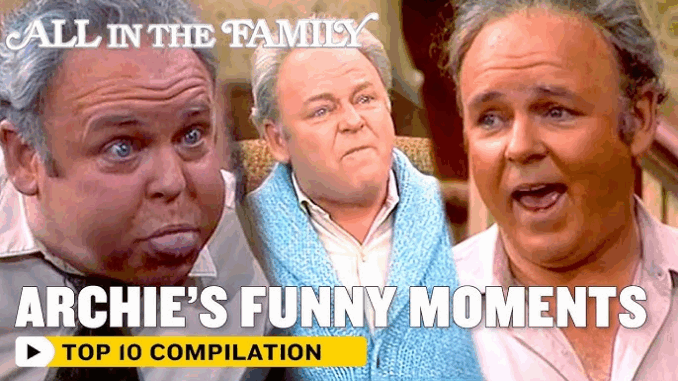
In the golden age of American television, few shows dared to say what All in the Family screamed from the rooftops. Premiering in 1971, this Norman Lear masterpiece didn’t just push boundaries—it obliterated them, sparking national conversations and redefining what sitcoms could be.
At the heart of the storm was Archie Bunker, portrayed by Carroll O’Connor—a loud-mouthed, working-class bigot whose outdated views clashed hilariously and often painfully with the changing social landscape. Whether tackling racism, women’s rights, the Vietnam War, or homosexuality, All in the Family didn’t flinch.
“We didn’t go looking for controversy,” Lear once said. “We just didn’t run from it.”
And America couldn’t look away.
Week after week, viewers tuned in—some laughing, some outraged—as taboo topics were unpacked in Archie’s Queens living room. But beyond the laughs, the show became a mirror reflecting the cultural turbulence of the 70s. It wasn’t just entertainment. It was a national reckoning, delivered with a punchline.
The impact? Staggering.
All in the Family was the #1 show in America for five straight years. It won 22 Emmy Awards and spawned a universe of spinoffs, including The Jeffersons, Maude, and Good Times. Archie’s armchair now sits in the Smithsonian, a relic of one of the boldest experiments in prime-time history.
Yet today, the legacy of All in the Family remains divisive. Was Archie a cautionary tale or a misunderstood anti-hero? Did the show educate—or inadvertently reinforce—the prejudices it sought to expose?
What’s certain is this: no other sitcom before or since has wielded comedy like a sledgehammer and a scalpel all at once.
In an era of sanitized scripts and safe storytelling, All in the Family dared to say the unsayable. And over 50 years later, we’re still talking about it.
